This blog is set up for the HHP 126, HHP 157, HHP 420, and HHP 428 courses along with other Sports Students as a way to communicate with fellow classmates and faculty members
Sunday, September 22, 2024
Budget Update | President's Office | Western Washington University
Friday, September 20, 2024
Tuesday, September 17, 2024
Montana Athletes Accept NIL Compensation to Endorse Senator Jon Tester | Athletic Business
Montana Athletes Accept NIL Compensation to Endorse Senator Jon Tester
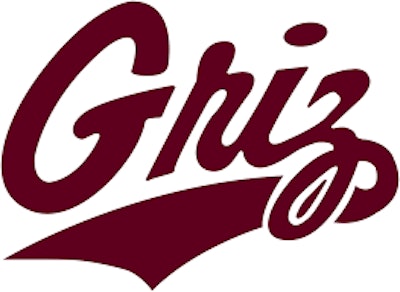
Two University of Montana women's soccer players have entered into an NIL partnership with activist group Montana Together and created Instagram videos supporting U.S. senator Jon Tester, a Democrat currently trailing in his re-election bid.
Sports Illustrated's NIL Daily reported Monday that news surfaced two weeks ago that the largely unknown Montana political group, Montana Together, had contacted Montana athletes offering NIL compensation in exchange for a social media endorsement of Tester. Deals offered ranged from $400 to $2,400, depending on services provided, to produce scripted or unscripted social media videos supporting Tester and his policies.
According to Loyola University Chicago sport management professor Noah Henderson, writing for NIL Today, Montana Together is not affiliated with the Jon Tester campaign, which has publicly stated that it was unaware of the activist group's behavior. The incumbent senator currently trails Republican challenger Tim Sheehy by as much as 8% in a race that will likely affect which party holds control of the Senate for the next two years.
News of the offering went national when Montana track athlete Lily Meskers leaked details of the NIL campaign to media outlets and launched a strongly worded statement to Fox News about Tester's platform and the Montana Together NIL campaign.
Videos recorded by Montana soccer players Taij'a Anderson and Riley Carolan have been marked as paid promotions.
According to Federal Campaign Laws cited by Henderson, political candidates can pay for endorsements as long as they are publicly disclosed. Since Montana Together is a separate entity from the Tester campaign, the value of these endorsements does not need to be transparent. However, any social media engagement of this nature must be marked as a paid promotion to comply with FTC guidelines.
The Montana Together NIL campaign was shared with student-athletes via the Grizzlies athletic department in what has been noted as standard NIL practice by the university. In a statement to The Montana Kaimin student newspaper, University of Montana senior woman administrator Jean Gee, who also serves as associate athletic director of student affairs and compliance, said, "It's not my job, necessarily, to verify the legitimacy of an organization that's coming to us to pass on an opportunity… This is part of the new NIL world for our student athletes, that you have to become an informed person."
"Without a doubt, Montana Together's NIL campaign raises novel moral and ethical questions about NIL and political endorsements," Henderson wrote. "While we all have political tilts, I implore readers to engage with this dilemma from an agnostic viewpoint. It could have just as quickly been a Republican, Libertarian, Green, or Independent political group engaging in NIL payment for endorsement."
Henderson then offered two perspectives — positive and negative:
Positive: The Montana Together NIL offering has the potential to bring about positive change in the political landscape. It encourages Democratic-leaning athletes to engage in the civic process, become more educated and informed about their political opinions, and, as people of high influence in their communities, inspire other younger people to get out and participate in the electoral process. This practice is viewpoint-neutral and does not hurt any political party or viewpoint, as every group can leverage NIL for endorsement.
While some athletes may only share the candidate's opinions to receive money, the net impact is positive, as it encourages a population that traditionally has low voter turnout to become more engaged. Nothing about the endorsements is deceptive, as they have been clearly and conspicuously marked as "paid promotion."
Negative: Even with disclosure practices in place, financial coercion to endorse a candidate raises ethical and moral concerns. Athletes, especially non-revenue athletes at a school like the University of Montana, are not rolling in cash in the way the media often likes to paint college athletes in the NIL era. Less than 2% of NCAA athletes receive full scholarships and, due to vigorous sports schedules, do not have the same freedom to work as non-athlete peers. Students athletes are often susceptible to financial coercion and these offers can entice athletes to compromise their political beliefs for their monetary well-being.
Non-campaign-related activism groups, like Montana Together, are not mandated to disclose the payment value for an endorsement. This leads to a lack of transparency for viewers, even if the post itself is disclosed. Increased commercialism of campaign endorsements also likely hurts voters, as it is seen as inauthentic and can dilute the meaning of bona fide endorsements without financial compensation. This NIL practice helps propagate financial influence on elections. It utilizes political funding to influence public opinion by targeting a susceptible population of people with relatively high influence and small bank accounts.
UConn Police Arrest Man for Online Stalking of Women's Basketball Player | Athletic Business
UConn Police Arrest Man for Online Stalking of Women's Basketball Player

The University of Connecticut police have arrested a man for allegedly stalking a player on the school's women's basketball team.
According to Eyewitness News 3, police arrested Robert Parmalee, 40, after he was reported in June for having sent numerous emails referencing a specific UConn student-athletes, as well as players at other schools.
The concerning emails, in which Parmalee confessed his love for women's basketball player Paige Bueckers and said he wanted to marry her, were reviewed by a UConn detective.
Social media content and posts were also gathered as evidence.
While Parmalee had no direct contact with UConn, detectives collaborated with law enforcement in Oregon, where he was residing at the time. Parmalee was taken into custody on August 27 in Windsor Locks, Conn., on an unrelated outstanding warrant in Oregon.
Eyewitness News 3 reported that Parmalee was initially held for extradition to Oregon, but recent developments indicated that Oregon law enforcement planned to dismiss the charges there, leading to his release from Hartford Correctional.
Further evidence of harassment gathered on social media over the past two months led to police obtaining a warrant and arresting him on Friday.
"We're all fans of UConn sports especially since we see the players everyday and they interact with the students so it is scary that people take it too far," said UConn freshman Bianca Giannandrea.
Parmalee faces charges of breach of peace in the second degree, and harassment in the second degree.
He is currently held on a $100,000 surety bond and appeared in Rockville Superior Court on Monday.
Will the $22.8 Billion NCAA v. House/Hubbard/Carter Antitrust Settlement Happen
Begin forwarded message:
From: The Drake Group Education Fund <julie@thedrakegroupeducationfund.ccsend.com>
Date: September 17, 2024 at 6:00:42 AM EDT
To: mcandrse@wvstateu.edu
Subject: Will the $22.8 Billion NCAA v. House/Hubbard/Carter Antitrust Settlement Happen
Reply-To: info@thedrakegroup.org
Sept. 19 Webinar - Experts Speak


Understanding the Proposed $22.8 Billion NCAA Antitrust Settlement
Free Webinar



Free Webinar
REGISTER HERE

Join an exceptional line-up of attorneys, journalists, and academic experts for a deep dive into the impacts of the proposed blockbuster NCAA vs. House-Hubbard-Carter antitrust lawsuits. Panelists will examine the current status of the proposed settlement, possible legal challenges, and how the $2.8 billion in past damages and estimated $20 billion in injunctive relief might affect Division I college athletics and athletes, including Olympic and other non-revenue sports. Given that the current settlement directs over 90 percent of the possible past damages to male athletes, primarily in the sports of football and basketball, the additional cost to Division I institutions for Title IX equity obligations will also be addressed.

Meet the Panelists - Full Bios Here

Critical Issues Webinar Series - 2024 Fall Schedule
The Drake Group Education Fund webinars feature stellar line-ups of attorneys, coaches, and academic experts who are the most knowledgeable and respected voices on current issues affecting college athletics. Save the following dates on your calendars now:
- October 17 - 2:00pmET How Will the Evolving Landscape of College Athletics Affect the USA Olympic Sports Development System?
- November 21 - Employee Status and Athlete Organizing in College Sport. How feasible is the unionization of college athletes?
- December 12 - 2:00pmET - Reported Increases in College Athlete Suicide and Other Mental Health Risks. What are the pressures confronted by college athletes and are there ways to better control these challenges?
You may access the recordings of 39 previous webinars and the complete proceedings of the annual Allen Sack National Symposium - Advancing Integrity in College Sport on the TDGEF website. See a full table of contents with links to each webinar.

Share This Announcement on Social Media

Share

Share

Share

The Drake Group Education Fund (TDGEF) is a 501(c)(3) non-profit education organization whose mission is to ensure that the promise of college athletics is realized for all stakeholders. TDGEF produces The Allen Sack National Symposium on Integrity in College Sports and the Critical Issues in College Sports Webinar Series, conducts fact-based research on intercollegiate athletics and develops position papers and other educational materials that influence public discourse on current issues and controversies in college sport. Please consider making a tax deductible contribution here.
Copyright: CC BY-NC-ND

The Drake Group Education Fund | 1720 Post Road East Suite 121 | Westport, CT 06880 US
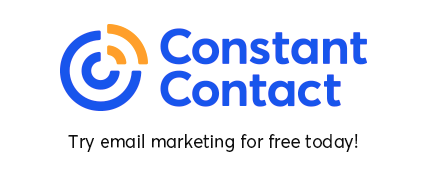
Monday, September 16, 2024
Assistant Track Coach Arrested for Inappropriate Relationship with a Minor | Athletic Business
Assistant Track Coach Arrested for Inappropriate Relationship with a Minor
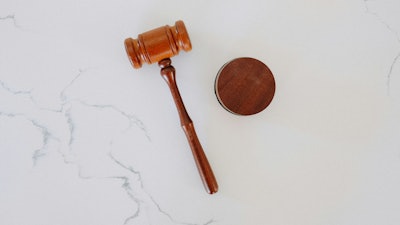
Jonathan Xavier Cabral, assistant track coach at Foothill High School, was arrested by the Laguna Beach police after an investigation the 24-year-old man's alleged relationship with a 14-year-old girl.
According to reporting by the Laguna Beach Independent, police, "charged him with statutory rape, meeting with a minor for lewd purposes, possession of child pornography and numerous other charges related to the incident. He was released on $100,000 bail."
The investigation revealed that Cabral first met the girl online. The two also met in person for, "sex and other lewd and lascivious acts."
At this time, Laguna Beach police believe there may be additional victims besides the 14-year-old girl they have already identified. It has not been confirmed if the victim was a student-athlete in Cabral's program.
Cabral's arrest is one of many similar incidents this year. According to a report NBOA, Business Leadership for Independent Schools, abuse from high school coaches could be linked to a "lack of oversight of the athletics department, and lack of training to prevent misconduct."
The report went on to provide resources and tips for school leadership to reduce the prevalence of coach-athlete abuse. The main points include: a behavioral standards statement for athletes and coaches, incentivizing reporting misconduct, prohibiting retaliation for reporting abuse, enforcing standards, and maintaining SafeSport's database.
At this time, Fullerton High School leaders has not released a statement about his arrest and no other victims have been identified.
$50M Lawsuit Against NCAA and Big Ten Network Filed by Ex-Michigan Football Players | Athletic Business
Ex-Michigan Football Players File $50M Lawsuit Against NCAA and Big Ten Network
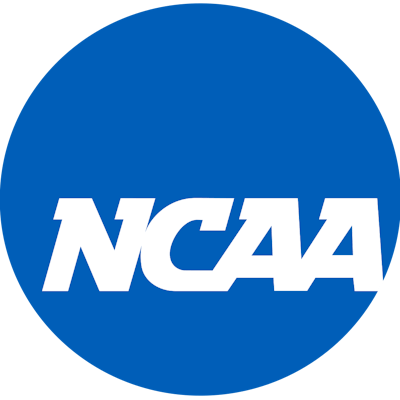
Four former University of Michigan football players have filed a class action lawsuit against the Big Ten Network and the NCAA seeking $50 million for their name, image and likeness rights.
The plaintiffs include quarterback, Denard Robinson defensive end, Mike Martin, linebacker, Shawn Crable and wide receiver, Braylon Edwards. Their lawsuit alleges they were "wrongfully and unlawfully denied" the chance to collect on the "iconic moments" they created for both organizations to profit from in advertising.
Jim Acho, the attorney representing the former Wolverines, said, "The NCAA knew for decades that preventing players from monetizing the one thing of value they have -- their name -- was wrong and unlawful. Today they recognize that players should have that right. But what about all the past players who were unlawfully denied that right? The money made off those players' backs was in the hundreds of millions. ... The players never saw a dime."
So far neither the NCAA or the Big Ten Network have commented on the lawsuit.
While these four ex-Michigan players may be the latest to file suit against the NCAA for NIL rights, they are certainly not alone. Earlier this year the iconic 1983 Cardiac Pack from North Carolina State University men's basketball team also filed suit against the NCAA for NIL rights.
That's not to mention the roughly $2.7 billion in damages that the NCAA is expected to pay out as a result of their antitrust lawsuits.
According to Sportico, "The plaintiffs also seek certification of their case as a class action on behalf of NCAA players who played before June 15, 2016, and whose image or likeness was used by the NCAA, Big Ten Network or its business partners."
Beyond the monetary damages, the lawsuit also seeks an injunction that would stop the NCAA and Big Ten from using the players' images at the very least.
NCAA Cites South Carolina State for Eligibility Violations in Three Sports | Athletic Business
NCAA Cites South Carolina State for Eligibility Violations in Three Sports
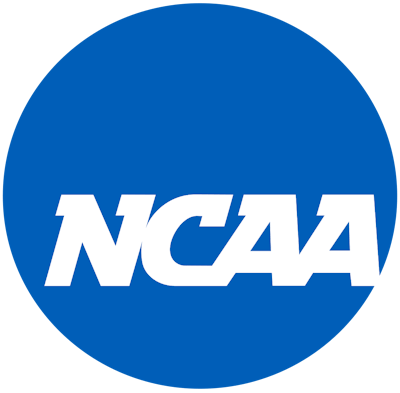
South Carolina State failed to monitor student-athlete eligibility during the 2021-22 academic year, resulting in four student-athletes in three sports competing while ineligible, according to an agreement released by the Division I Committee on Infractions. The school also agreed that it failed to maintain squad lists for 14 sports over two academic years.
The agreement also covered an unrelated violation that occurred when former men's basketball assistant coach Marcus Sikes failed to cooperate with an investigation into possible recruiting inducements in the men's basketball program.
The school and the enforcement staff agreed that the eligibility violations in this case occurred after an extensive ransomware attack that affected the school's information technology and automated processes. As a result, the school committed violations of full-time enrollment and progress-toward-degree rules by allowing four student-athletes from three sports — women's basketball, football and women's soccer —to compete in 39 contests while ineligible. The school also did not withhold two student-athletes from competition until their eligibility was reinstated.
During the eligibility investigation, the school self-reported potential violations of recruiting rules in the men's basketball program. Enforcement staff attempted to schedule an interview with Sikes about the potential violations, but he did not respond to the enforcement staff's requests and therefore did not meet his obligation to cooperate. Because Sikes' violation occurred after his separation from the school, it does not attach to the school. He did not participate in the negotiated resolution process.
The school and enforcement staff used ranges identified by the Division I membership-approved infractions penalty guidelines to agree upon Level II-mitigated penalties for the university and Level I-aggravated penalties for Sikes. The decision contains the full list of penalties as approved by the Committee on Infractions, including:
- One year of probation.
- A $5,000 fine, plus a separate $5,000 fine resulting from ineligible participation in a postseason contest in women's basketball.
- A 2.5% reduction in football scholarships during the 2024-25 academic year (to no more than 61 scholarships).
- A 2.5% reduction in women's basketball scholarships for the 2024-25 academic year (to no more than 14 scholarships).
- A 2.5% reduction in women's soccer scholarships for the 2024-25 academic year (to no more than 13 scholarships).
- A vacation of all records in which student-athletes competed while ineligible.
- A three-year show-cause order for Sikes. During the show-cause order, any employing member school must suspend Sikes from 100% of the men's basketball season during the first year of his employment.
Members of the Committee on Infractions are drawn from the NCAA membership and members of the public. The members of the panel who reviewed this case are Stephen Madva, attorney in private practice; Roderick Perry, former athletics director at IUPUI and chief hearing officer for the panel; and Tricia Turley Brandenburg, executive associate athletics director and senior woman administrator at Army.